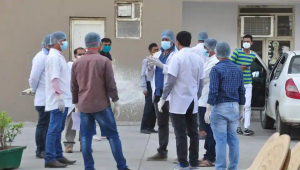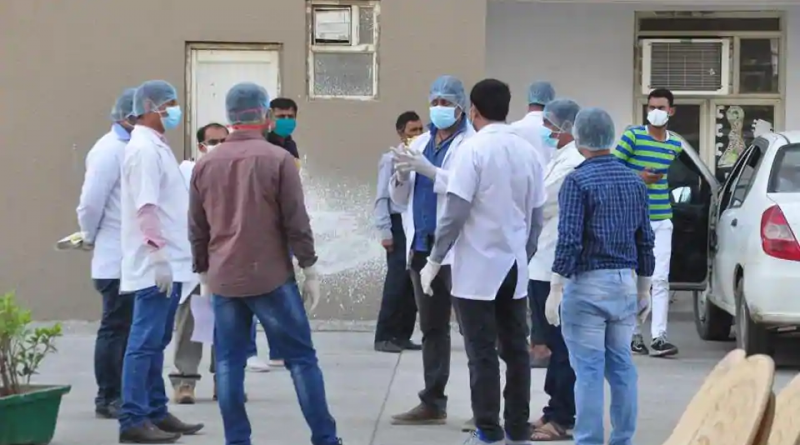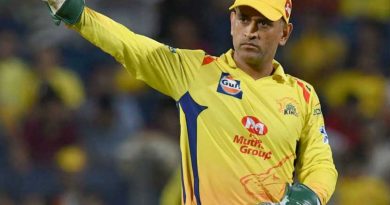INDIA says it’s “Best”, China Asked to Ease Export of Medical Equipment…
China asked to ease export of medical equipment, India says it’s ‘best’ signal for ties.
New Delhi is also in communicating with Beijing for keeping the supply line of active pharmaceutical ingredients open for manufacturing generic drugs.

Chinese companies have been contracted for nearly 15 million personal protective equipment (PPE) kits comprising gowns, gloves, masks and goggles.
Chinese companies have been contracted for nearly 15 million personal protective equipment (PPE) kits comprising gowns, gloves, masks and goggles, and 1.5 million rapid testing kits for Covid-19 by the Indian government and private companies. Some of this equipment has already reached India, he said.
India has now asked China to speed up the export of a large quantity of quality-checked medical equipment such as protective clothing, ventilators and testing kits from Chinese companies, Misri told a virtual news conference with Beijing-based Indian journalists and representatives of China’s official media.
New Delhi is also in communication with Beijing on keeping the supply line of active pharmaceutical ingredients (APIs) open for manufacturing generic drugs.
“And at this time, I think facilitation of our needs and our requirements in a timely manner, in a smooth manner, on a predictable timeline at prices that are stable and orderly would be the best signal possible to send for the India-China relationship,” Misri said.
“So, I think, this…may have started out as a crisis but it is definitely an opportunity for us to send out a very good message, generally a good signal about India-China cooperation.”
Misri said both countries trade in medicine ingredients such as APIs. “We import…a considerable amount of APIs from China to manufacture pharmaceuticals that we export to the rest of the world. And in certain cases, Chinese companies import APIs from India to manufacture certain pharmaceuticals that they need for domestic consumption as well as export,” he said.
“So, it’s important at this time when not just the two countries but the rest of the world needs medicines and pharmaceuticals, for us to keep this product line open.”
The figure for medical equipment and other materials being supplied by China to India is “enormously dynamic” because there are flights “taking off on almost a daily basis from Shanghai, Guangzhou, Shenzhen for India”, Misri said.
“The numbers are significant…We are in the process of, or have already completed, contracting for nearly 15 million PPE kits, for instance, consisting of gowns, masks, gloves, goggles,” he said.
Misri added: “Given our size, our position, I think there is considerable space for India and China to cooperate in controlling the spread of this pandemic and there are immediate short-term as well as medium- and long-term aspects to our cooperation.”
The immediate aspect is cooperating in procuring “much-needed medical equipment and products in India, as our healthcare community and our healthcare fraternity, which is at the frontlines of facing this challenge, battles this outbreak”, he said.
Misri noted that when China was dealing with the peak of the Covid-19 outbreak, India had provided medical assistance.
“Now, we are in the process of commercially procuring a large number of these supplies. China happens to be one of the largest producers, has a number of these products. So, this offers us an opportunity of cooperating in a smooth manner by facilitating the procurement of medical assistance and medical equipment and products from China,” he said.
Some of the orders were placed before China imposed regulations that limited and restricted the number of Chinese companies that can export to India, he noted. “Given (these) products are licenced for import to India, it will be a welcome step for Chinese authorities to expedite the registration of these products,” he said.
The pandemic first emerged as a local outbreak in Wuhan city in central China late last year, before spreading across the country and beyond over the next three-and-half months. The pandemic has so far killed nearly 120,000 people and infected more than 1.8 million.
In India, the confirmed cases have doubled in about a week to 10,000.
China itself suffered from a serious shortage of medical equipment in the first stages of the outbreak in Wuhan. The peak has since passed in China and local manufacturers have ramped up production of medical equipment as demand surged across the world.
“The two governments have been in touch to ensure stable and orderly purchase and procurement of these items, (focusing) on issues such as identifying bona fide suppliers of these products and entering into agreements with them,” Misri said.
It is important to ensure the quality of products and make purchases at reasonable prices, he said.
A number of European governments had rejected Chinese-made medical equipment designed for use to prevent and control the spread of the Coronavirus. Thousands of testing kits and medical masks were found to be below standard or defective, according to authorities in Spain, Turkey and the Netherlands.
Beijing has since tightened monitoring and inspection of medical equipment that is exported.
India and China are currently observing the 70th anniversary of diplomatic ties though various commemorative events have been put off because of the Covid-19 outbreak.



